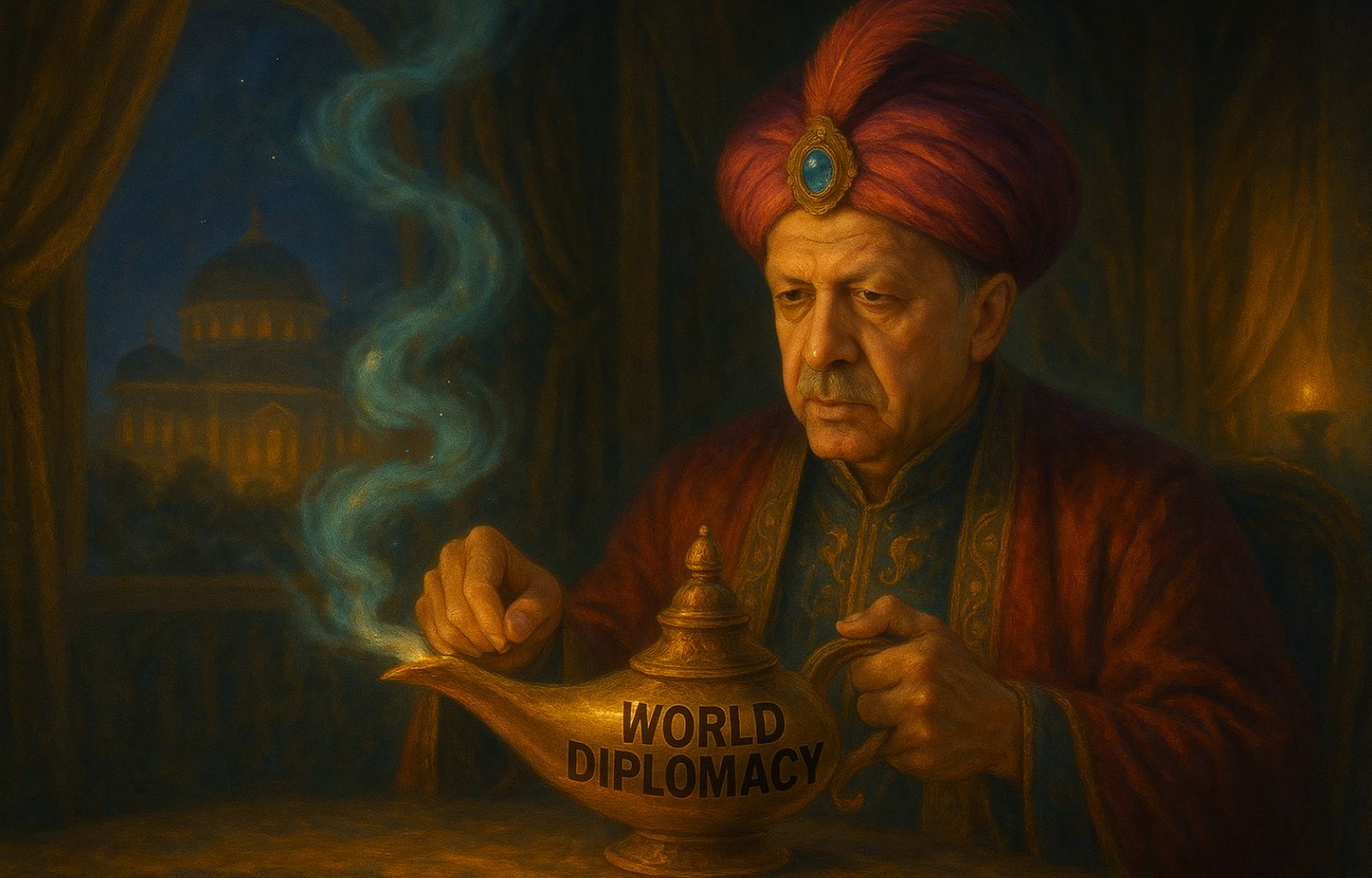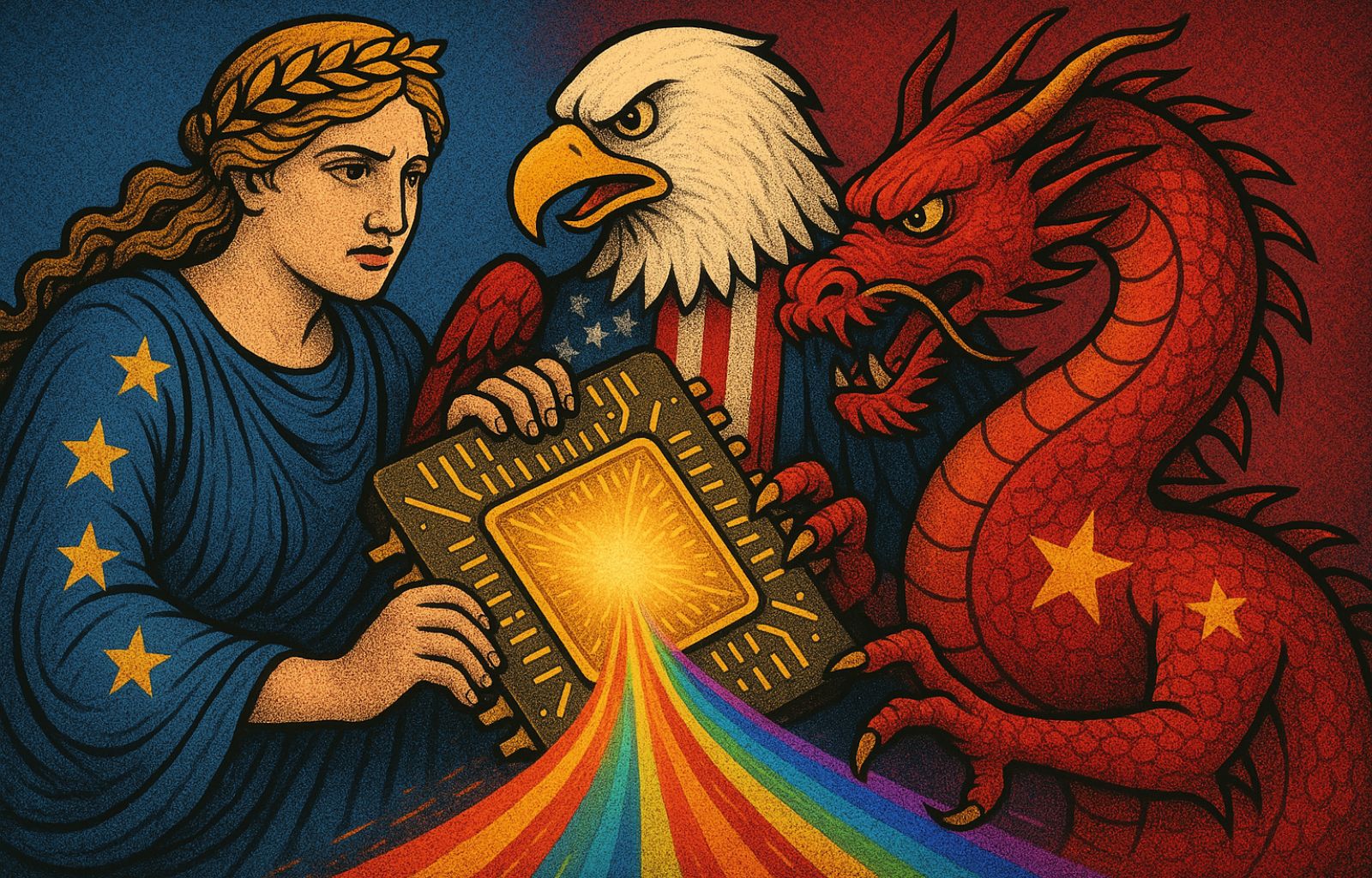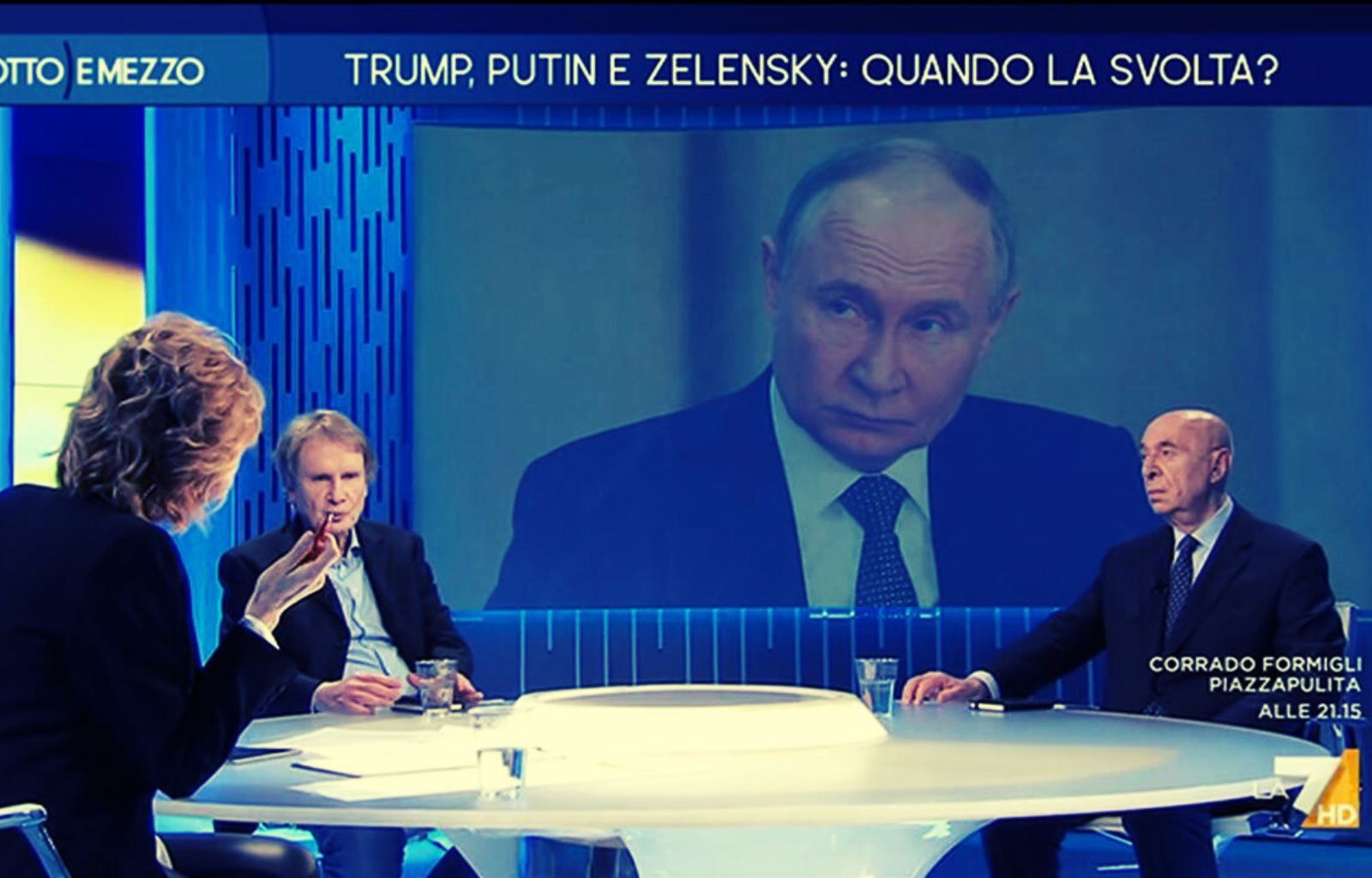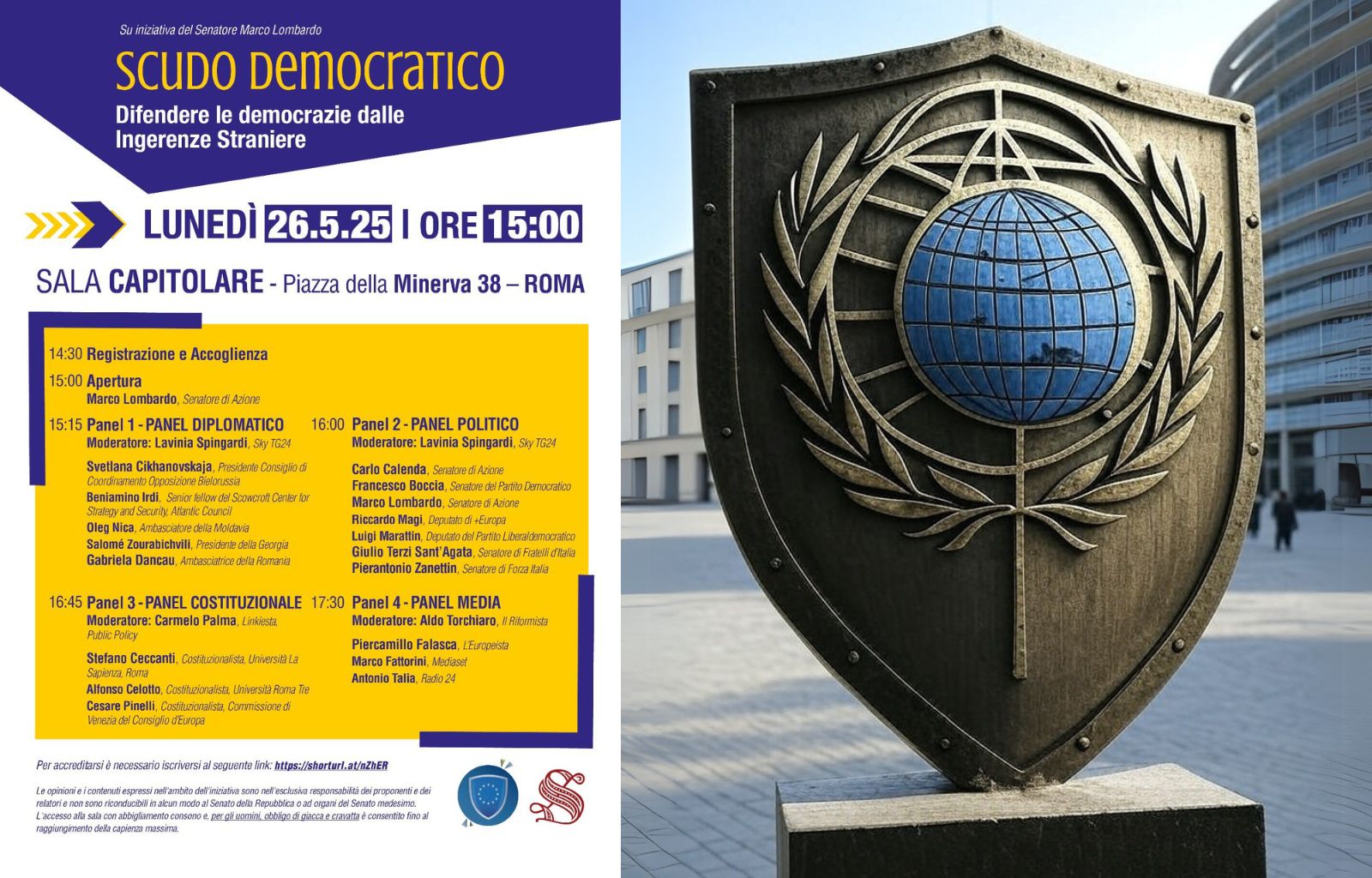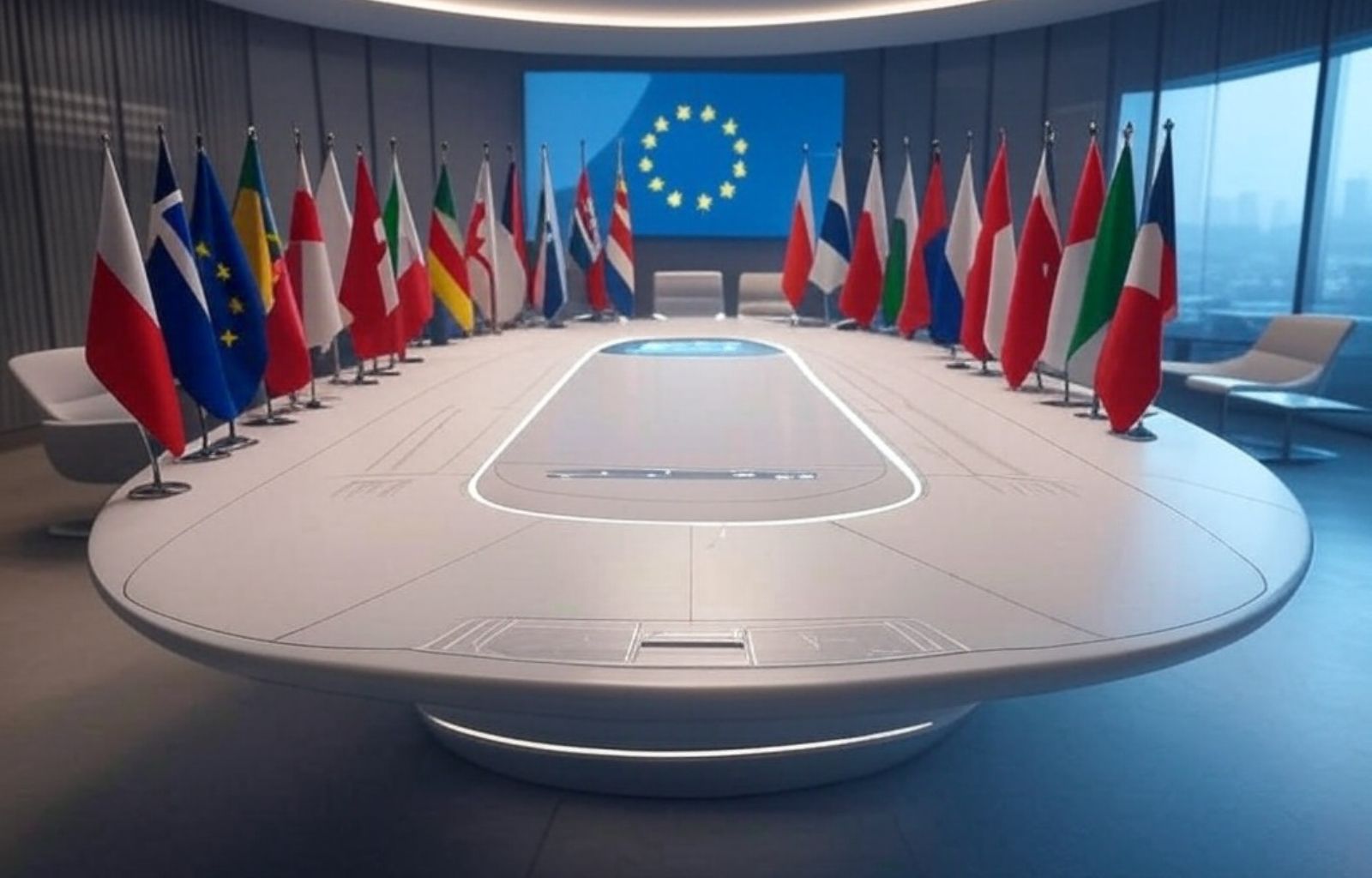After the unipolar era. The difficult path to European strategic autonomy
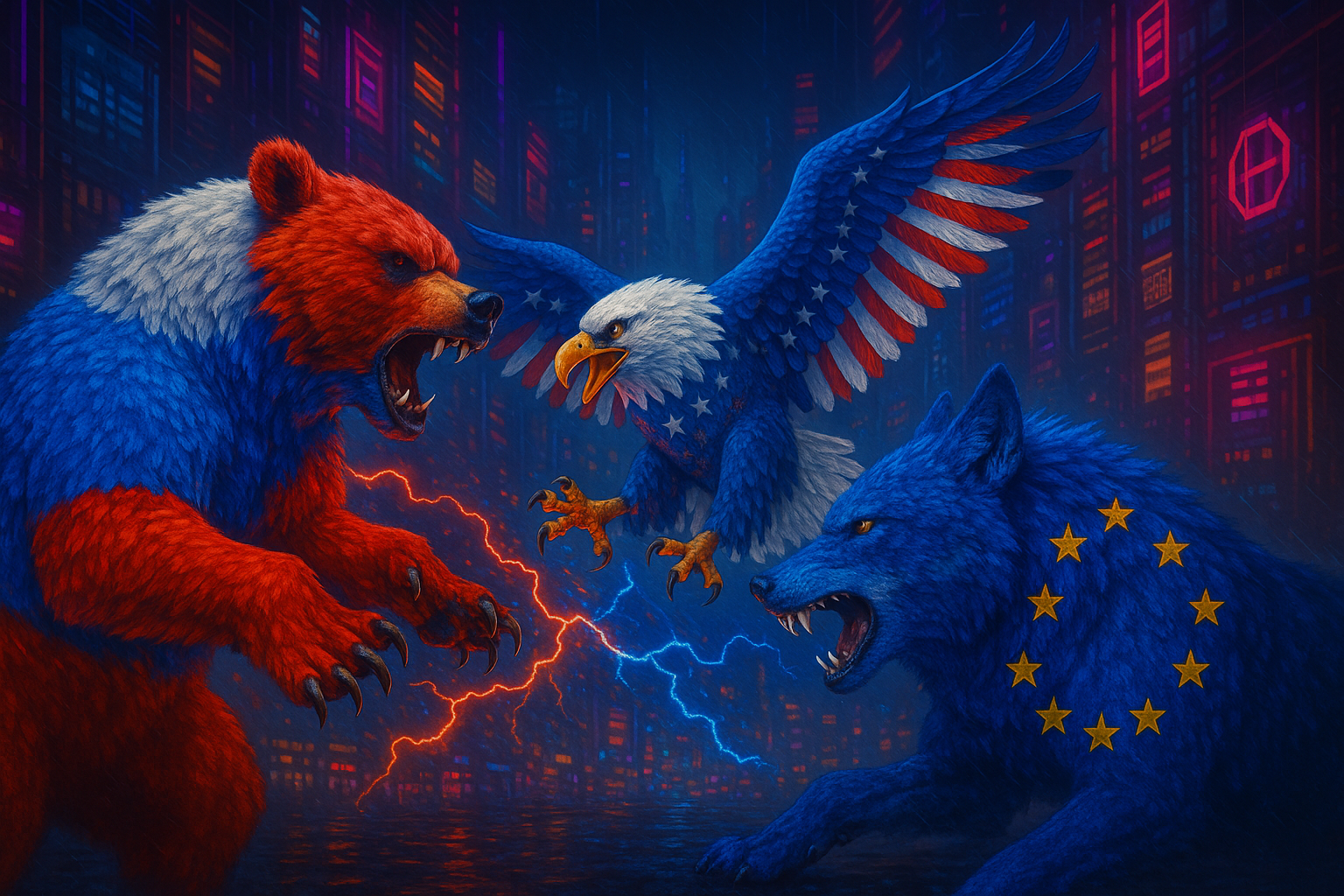
US, Russia and Europe compared
There is nothing orderly about the new global order. Beneath the rhetorical surface of international
international organisations and established alliances, there is a profound redefinition of priorities and
of the strategic visions of the major powers. The United States, Russia and the European Union –
nominally partners or rivals, depending on the coordinates – are moving on increasingly
separate tracks, with geopolitical objectives that rarely coincide and, in some cases, openly hinder each other.
openly hinder each other.
The funeral of Pope Francis, a global and at the same time symbolic event, offered the cue for
new diplomatic triangulations, such as themeeting between Trump and Zelensky, but also underlined
by contrast, how much Europe is struggling to carve out a space of its own in the most
sensitive international dossiers. In a context marked by the return of imperialisms and a growing global competition
, the challenge for the EU is now clear: to abandon the role of comprimario and build an
autonomous strategic identity of its own, capable of navigating between Washington ‘s tensions and Moscow’s manoeuvres, without forgetting Beijing.
of Moscow, without forgetting Beijing…
This analysis reviews the divergences between the three main players in the international system,
to show how the current geopolitical transition can no longer be interpreted according to the
old logics of the Cold War or liberal globalisation.
A new paradigm is needed and Europe, if it does not want to be crushed, must start writing it.
The US return to the politics of force
American foreign policy, especially in the approach of Donald Trump, has progressively
disengaged from the grand idealistic narratives that had characterised the post-1989 phase, heir to a
a ‘civilising mission’ that had legitimised stars and stripes hegemony under the banner
of liberal democracy. From the Bush doctrine to the multilateralist ambiguities of
Obama, Washington has for decades built consensus on a universalist value base. With
Trump, that grammar has been dismantled piece by piece.
Trump has embodied a naked national interest doctrine of:
- economic protectionism (not as an exception, but as a regulatory principle),
- downsizing of multilateral commitments, read as unnecessary and limiting burdens,
- muscular win-lose bilateral negotiations, where the only objective is to
prevail over the interlocutor, even if an ally, - hierarchical redefinition of traditional alliances, particularly within NATO,
where solidarity is subordinated to the calculation of immediate cost-benefit.
What has changed is the entire legitimisation structure of American soft power. The ‘peace through
force’ -also evoked in the recent talks with Zelensky- was not so much a return to
realist diplomacy, but a radicalisation of it. In this scheme, the United States no longer perceives itself
perceive itself no longer as the guarantor of the global order, but as the leader of a new era of
open competition between powers, where even allies must ‘pay the price’ for American protection
American protection, and force is not tempered by moral obligations.
Trumpian ideology, rather than deconstructing American internationalism, has reconfigured it
as strategic nationalism: an approach in which the world balance is not based on shared rules
shared rules, but on negotiable power relations from time to time, where credibility is entrusted to the
economic, military and communicative dominance.
Tariff policy, for example, has not only been an instrument of trade rebalancing, but a
political device to force partners to sit at the table from disadvantaged positions. Similarly
likewise, the strategy towards China has seen the combined use of sanctions, hostile narratives and
technological decoupling as tools to contain Beijing’s rise, redefining the
logic of globalisation according to a ‘selective’ model, where trade is only worthwhile if it
produce asymmetrical benefits for the US.
The proposed peace plan for Ukraine, marked by territorial concessions rather than intransigent defence
intransigent defence of sovereignty, represents the most obvious declination of this vision: stability
is bartered with the renunciation of once untouchable values. Trump is interested in ending the
conflict in order to free up resources and pacify the European front, but not in the name of international law.
international law, but to recalibrate the strategic focus on the Pacific and the challenge with China, which
remains the real geopolitical obsession of his second term.
This approach also implies a profound twist in transatlantic relations.Europe, in the
Trumpian design, is no longer a strategic ally, but an economically competitive subject
to be contained and politically subordinated. The pressure to increase defence spending, the
tariff threats, the disregard for the EU’s internal cohesion reveal a vision in which American
American leadership only stands if others are weakened, divided and dependent.
Ultimately, American foreign policy under Trump is not a renunciation of global power, but a
mutation of the way that power is exercised: without the weight of universal values, without the
constraint of historical alliances, without the narrative of democracy as export. It is an imperial doctrine
reformulated for the 21st century, where force is communication, peace is transaction, and
hegemony is redefined as negotiating pre-eminence.
In this context, every alliance becomes conditional, every negotiation is a zero-sum exchange,
and moral consistency is sacrificed in favour of immediate advantage.
Russia and the geopolitics of resentment
If Trumpian America has taken refuge in an assertive isolationism, Vladimir Putin ‘s Russia has
chosen the exact opposite: a muscular projection of power based on the idea that force, and not
consensus, is today the true international currency. The Kremlin ‘s foreign policy is the expression of
an anachronistic yet functional worldview: the one according to which great empires do not
disappear, but retreat into the shadows waiting to regain centre stage.
The contemporary Russian doctrine, initiated with the intervention in Georgia in 2008, confirmed by the
war in Syria and refined in the Ukrainian conflict, is not limited to a reaction to perceived threats.
It is acoherent, systemic strategy that has a clear horizon: the restoration
ofRussian influence in the post-Soviet space and, more broadly, in the multipolar system in the process of
being consolidated.
Moscow has been acting, for years now, along three operational lines:
- Defensive-identitarian: the rhetoric of the ‘Russian world’(Russkiy Mir) serves to construct an ideological framework that justifies interference in neighbouring states (Ukraine, Belarus, Moldova) as ‘protection of compatriots’ or ‘defence of the Orthodox identity’. In reality, it is an instrumentalisation of national sentiment to legitimise military expansionism and institutional subversion.
- Disruptive: Russia systematically works to undermine the internal cohesion of Western blocs by targeting their faults. It supports sovereignist movements in Europe, finances alternative media and disinformation, and promotes anti-NATO and anti-EU narratives. Rather than building an alliance of its own, Moscow prefers to fragment existing ones.
- Neo-imperial: on the operational level, the Kremlin aims to re-establish its military and economic presence in peripheral theatres, such as the Balkans, the Sahel, the Middle East, the Arctic and the Indo-Pacific. The logic is clear: occupy the space left vacant by the United States and Europe, taking advantage of crises and indecisions.
But the deeper interpretative key to Russian strategy is another: the geopolitics of
resentment. Putin does not merely challenge the West on the level of weapons or alliances: he challenges its
its symbolic order. The Kremlin moves as a wounded power, convinced that it has suffered
ahistoric humiliation with the collapse of the USSR and the failure to “honourably include” itself in the American-led
American-led international system.
Resentment thus becomes the ideological matrix that legitimises the use of force as revenge and
reparation, authoritarianism as a response to ‘democratic hypocrisy’ and territorial revisionism
as ‘historical justice’. In this framework, any yielding of the West is interpreted not
as a sign of reasonableness, but as systemic weakness. And every opening is manipulated
as confirmation of an ineluctable fate: Russia is to be feared, not loved.
Russian soft power – already fragile – has been replaced by aggressive ‘sharp power’:
disinformation campaigns, targeted cyber attacks, political use of energy resources. More than
convince, Moscow wants to intimidate. More than attract, it wants to influence. And this is consistent with
the idea of a world divided into spheres of influence and not into alliances of values.

However, this strategy also comes at an increasing cost. The war in Ukraine, while useful for
consolidate domestic power and reassert international centrality, has generated an unprecedented economic and diplomatic isolation, pushing Russia into a forced alliance with China.
unprecedented economic and diplomatic isolation, pushing Russia into a forced alliance with China
which risks compromising its long-term autonomy. But in the short term, Putin is betting
on the fragility of the West, the fraying of the European Union, and American strategic
fatigue. And this is precisely why the European reaction to this challenge must be
first and foremost narrative: to oppose the geopolitics of resentment with a geopolitics of project,
capable of reconstructing a strong, cohesive and credible imaginary.
At a time when communication carries the same weight as weapons, Russia has realised that sowing
distrust, division and fear can be more effective than winning a battle. And it is in this
symbolic terrain where Europe’s real challenge lies today.
Europe facing the challenge of strategic autonomy
In this fragmented and competitive framework, the European Union is at a historic crossroads.
If until a few years ago it could play on its soft power, on the strength of multilateral diplomacy and the defence of international rules, today it can no longer afford the luxury of ambiguity.
defence of international rules, today it can no longer afford the luxury of ambiguity. The
deterioration of the global order, between US isolationism and Russian revanchism, forces
Europe to redefine its role in the world: not as a passive third pole, but as an actor
aware of its political and historical mission.
Strategic autonomy, as much evoked as eluded in fact, must now be articulated in three interconnected plans
interconnected: security,energy and industrial independence, and above all the construction of
a European narrative that is up to contemporary challenges. On the defence front, the war in
Ukraine made clear the continent’s vulnerability in the absence of an autonomous military capacity
autonomous. Dependence on NATO – in fact, on the United States – may prove to be an Achilles heel
Achilles’ heel the moment Washington changes its approach, as has already happened under Trump.
But security is not only played with tanks: it is played with data, technologies,
value chains and cultural resilience. In this sense, Europe needs an industrial policy that
combining sovereignty and ecological transition, and an information system that counteracts
disinformation and enhances a pluralist, democratic, cohesive identity.
The most urgent dimension, however, is the communicative one. In an era dominated by the ‘geopolitics
of emotions’, where rival powers impose their frame through symbols, images and
strong narratives, the European Union still appears to lack a shared narrative. The values of peace
human rights and multilateralism alone are no longer enough: they must be embedded in a political discourse and
strategy that speaks to peoples before it speaks to governments. In the absence of a coherent and
affirmative, Europe risks not onlygeopolitical irrelevance, but also symbolicirrelevance.
It is time to decide whether to be merely a technical arbiter of others’ conflicts or a subject capable of
producing imagery, influence and political project. In this sense, strategic autonomy is
also – and perhaps above all – a cultural battle: for a Europe that does not react, but
proposes; that does not suffer the dominant narratives, but builds its own.
The end of multilateral illusions and the polarisation of the great powers require a decisive response from Europe
. It is not only common structures or industrial plans that are needed: a vision is needed. A
solid, credible and competitive narrative, capable of withstanding the impact of a world where power and
imagination walk together.
Strategic autonomy is no longer a prospect: it is an historical necessity.

